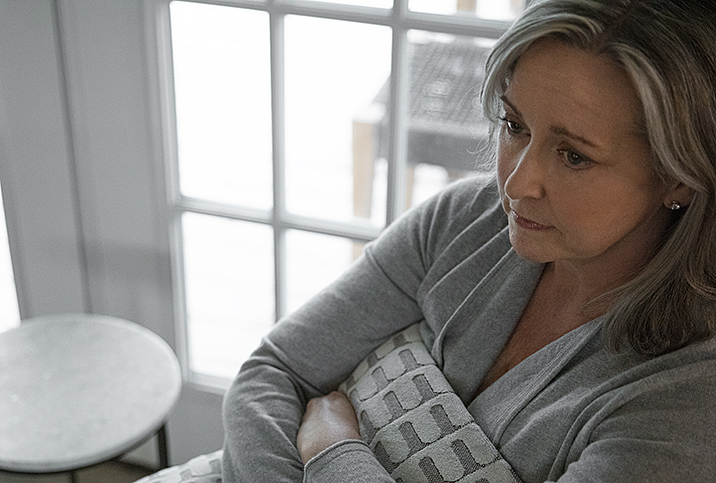Ovarian Cancer Trauma: Coping With a Diagnosis

All cancer diagnoses are scary and lonely. But being told you have ovarian cancer can be especially shocking, because in its early stages, most women show no symptoms. Don't put yourself down if you experience guilt, anger, numbness, envy of healthy friends and family members or if surroundings seem unreal. Loved ones are a common concern: What will happen to them? How will they cope? You may stress about finances—how you will pay for treatment and worry if your quality of life will suffer.
Lack of control can make you feel helpless, and confusing medical information can make it worse. Women in childbearing years may worry about fertility. Transgender people may find it harder to get informed care. And, unfortunately, many women blame themselves.
Take a deep breath, slow down your thoughts and examine them. Be assured you are going to be welcomed by a support network of sufferers and survivors, and you are not alone. Do not be ashamed to investigate programs that help with cancer care expenses and possible job loss. Most important, educate yourself about the disease and treatment.
Don't scare yourself
Cancer is like a home intruder who takes over and leaves us powerless. We all fear not being in control of our lives, but fear is one thing you can control, using proven methods like cognitive behavioral therapy (CBT) and mindfulness. Mindfulness is concentrating your attention on the present moment while you let go of negative thought patterns; CBT is changing the thoughts to sway your moods. Managing your anxiety and depression can help clear your judgment and have a positive effect on the people you care about.
No woman is an island
Be careful not to burden yourself by being strong for loved ones. There's nothing wrong with reaching out to fellow sufferers when friends and family do not completely get what you're going through. Look into hospital-sponsored group therapy. You may have already been given pamphlets and links to websites. There are beneficial programs outside of the hospital as well, in houses of worship, counseling centers and spiritual healing centers. You can connect with other patients through online chat groups and read blogs by survivors for guidance and inspiration. Men assigned female gender at birth may have to look harder for help, but it is available.
Planning reduces stress
In the United States, financial hardship can add insult to cancer patients' injury. However, you'll be less anxious if you approach medical expenses and job loss head-on. Accept that your life will change and focus on priorities. Hopefully, you have insurance, which usually covers most cancer treatments. If you do not, or if you lose coverage, there are resources that can help. Explain your situation to creditors and landlords as soon as possible. Do not be afraid to talk to a social worker or apply for Medicaid and other government programs. Your survival is what matters most.
Cancer happens
Everyone with ovarian cancer is vulnerable to self-blame. Keep in mind that although there are risk factors, there is no way of knowing what caused your case. Cancer can bypass people with high-risk lifestyles but attack healthy children; it's no one's fault. Some women with ovarian cancer have found the one positive thing about their illness is it forces them to focus on important things and let go of what does not matter.


















